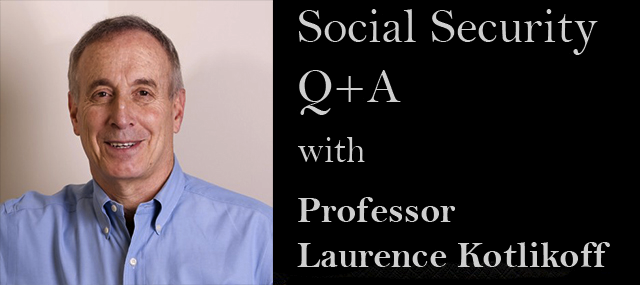Question: These days, with millennials hurting, there is talk of generational “warfare.” Greedy geezers versus unemployed millennials, with the lurking specter of poorly paid millennials footing the bill for the “fat cat” boomers’ Social Security payments. I am wondering what happens to the Social Security benefits people receive. Does most of that money recirculate into the economy? Or do the greedy geezers hoard it (perhaps to pass it to the next generation)? One would think that the Social Security payments to seniors are needed to meet current needs and that they are spent and recirculated. If this is true, does this have a salubrious effect on the economy? Does this recirculation benefit millennials and the economy in general?
Answer: No one can eat green pieces of paper. So the focus on recirculating money is misplaced. The real issue is that the economy produces output each year – call it corn, which can be eaten or planted. The more that’s planted, the more productive young workers will be. Think of young workers being hired to raise crops. If no corn seed has been planted, there is no weeding, watering, harvesting, etc. to do and, therefore, no need for, nor payment to, the young.
The US has spent six decades taking ever larger shares of the corn workers earn when young and giving it to the old in the form of benefits. The old have consumed this. In so doing, they have lowered national saving and investment. The young have been told they’d get their chance to steal from their children through the take-as-you-go policy we’ve been running. In other words, they too have been promised very large benefits in old age. As a result, they have also consumed a lot and saved very little.
But this Ponzi scheme is falling apart, as all such schemes do. As a result, today’s young kids are facing astronomical future tax hikes and benefit cuts, and not just with respect to Social Security. And thanks to our take-and-spend-as-you-go generational policy, the nation’s saving rate is now close to zero and our domestic investment rate isn’t much larger. This has left today’s young with less capital (seed corn) with which to produce and, as a result, they are earning far less in the market place than had each age group collectively paid for the Social Security, Medicare and Medicaid it received.
Don’t get me wrong. I’m a huge supporter of Social insurance (see The Purple Plans for proof). But I’m also outraged, morally and as an economist, by generational theft.
________
When it comes to personal finance, economics and our software care about one thing—your living standard. All questions in personal finance boil down to your living standard. Your decision about when and how to take Social Security can affect your living standard throughout your retirement.
I am a professor of economics and I’ve spent a good part of my academic career studying personal financial behavior. Here’s why my colleagues and I developed Maximize My Social Security. Deciding, on your own, which Social Security benefits to take and in which month to take them is incredibly difficult. Most households face millions of options. You can easily lose tens of thousands of dollars making the wrong choices.
My company’s software, Maximize My Social Security, can help you avoid costly mistakes and instead discover your maximized lifetime household benefits.




